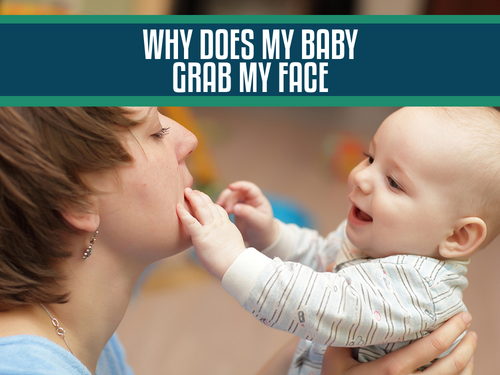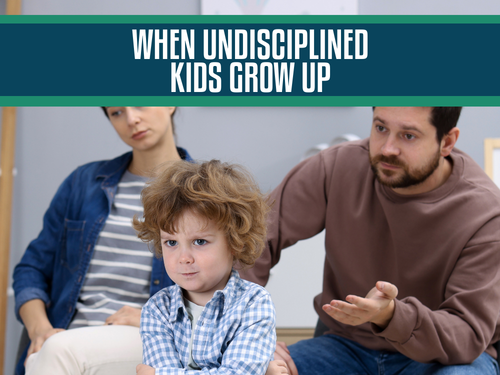When Undisciplined Kids Grow Up: Why Habits Matter

Yes—finger plays, clapping games, and dance routines that use hand gestures all help. Combine rhythm and repetition for deeper learning.
Send home simple activity ideas, kits, or worksheets. Offer short instructions and encourage family involvement. Regular practice builds lasting progress.
Try origami, sticker scenes, stringing pasta, or painting with Q-tips. Crafts that use small pieces build precision and control.
Many parents wonder what happens if their child never learns discipline. The truth is, children who don’t practice self-control, respect, or responsibility may carry these habits into adulthood. This doesn’t mean they are “bad kids,” but it does mean they might face bigger challenges when it comes to school, work, and relationships.
Discipline isn’t about punishment—it’s about teaching kids the habits that help them succeed in life.
What “Undisciplined” Really Means

When we say a child is “undisciplined,” we’re not talking about being wild or unlovable. It usually means they haven’t learned:
- How to follow routines or directions
- How to handle big feelings without meltdowns
- How to respect limits like bedtime, chores, or screen time
Without guidance, kids can grow into teens and adults who struggle with these same skills.
Why Discipline Matters for the Future
.webp)
Discipline in childhood lays the foundation for adult success. Studies show that self-control in kids predicts better health, stronger relationships, and even financial stability later in life. Adults who lacked structure as children may find it harder to manage time, follow through on responsibilities, or control impulses.
On the other hand, kids who learn healthy discipline are more likely to become independent, respectful, and resilient adults.
What Happens When Kids Don’t Learn Boundaries
.webp)
If boundaries are never taught, children may grow up facing:
- School and work struggles: Difficulty following directions or completing tasks on time
- Money problems: Overspending or making risky choices without thinking ahead
- Relationship challenges: Arguing, giving up too easily, or expecting others to always give in
Not every undisciplined child will face all of these, but the risk is higher when kids don’t practice these skills early on.
Positive Discipline That Actually Works
.webp)
Raising disciplined kids doesn’t mean harsh punishments. It means setting clear expectations and following through. Here are proven approaches:
- Set clear rules: Keep house rules short and easy to follow—like “speak kindly” or “finish homework before play.”
- Create routines: Morning and bedtime routines reduce battles because everyone knows what to expect.
- Give choices: Offer two options, like “blue shirt or red shirt,” so kids feel in control while you set the limits.
- Use natural consequences: If a toy is left outside, it’s put away for the day. This teaches responsibility without yelling.
- Model the behavior: Kids copy what they see. Staying calm and respectful shows them how to act.
These small steps build habits that stick into adulthood.
What If Your Teen or Young Adult Already Lacks Discipline?
.webp)
It’s never too late to help your child learn self-control. Even teenagers and young adults can reset when parents guide them with consistency and care. Try:
- Collaborating instead of controlling: Ask, “What’s your plan to fix this?” and help them build responsibility.
- Linking privileges to actions: More trust means more freedom—like later curfews or extra screen time.
- Staying calm but firm: Hold your boundaries, even if they push back.
Remember, kids don’t stop learning when they hit 18. Discipline is a lifelong skill.
Practical Tips for Parents
.webp)
If you want to avoid raising undisciplined kids, start small and stay consistent. Try these:
- Post 3 family rules where everyone can see them.
- Stick to simple daily routines.
- Limit screen time and encourage real-world play.
- Praise effort, not just results.
- Follow through—kids learn fastest when they know you mean what you say.
You May Also Like: When Do Kids Have Growth Spurts? Easy Guide
Final Thoughts
Undisciplined kids don’t suddenly become responsible adults. Discipline is learned over time, through daily routines, consistent boundaries, and loving guidance. By teaching kids how to respect limits, manage emotions, and take responsibility, you’re giving them tools that will carry into every part of their future life.
You May Also Like: Acts of Kindness for Kids: Simple and Fun Ideas
FAQs About Undisciplined Kids
1. What happens when kids grow up without discipline?
They may struggle with school, jobs, money management, and relationships. Without boundaries, it’s harder to build self-control and responsibility.
2. Can discipline be taught later in life?
Yes. Even teens and young adults can learn discipline through consistent rules, natural consequences, and positive support from parents.
3. Does discipline mean punishment?
No. Discipline means teaching and guiding. Positive discipline focuses on routines, respect, and responsibility—not harsh punishment.
4. How many rules should I set at home?
Keep it simple—three to five clear rules are usually enough. Too many rules can overwhelm kids and lead to more pushback.
5. What’s the best first step to raising disciplined kids?
Start with routines. Morning, after-school, and bedtime routines give kids structure, reduce stress, and make discipline easier to follow.
You May Also Like: Conflict Resolution for Kids: How to Teach Peaceful Problem-Solving




